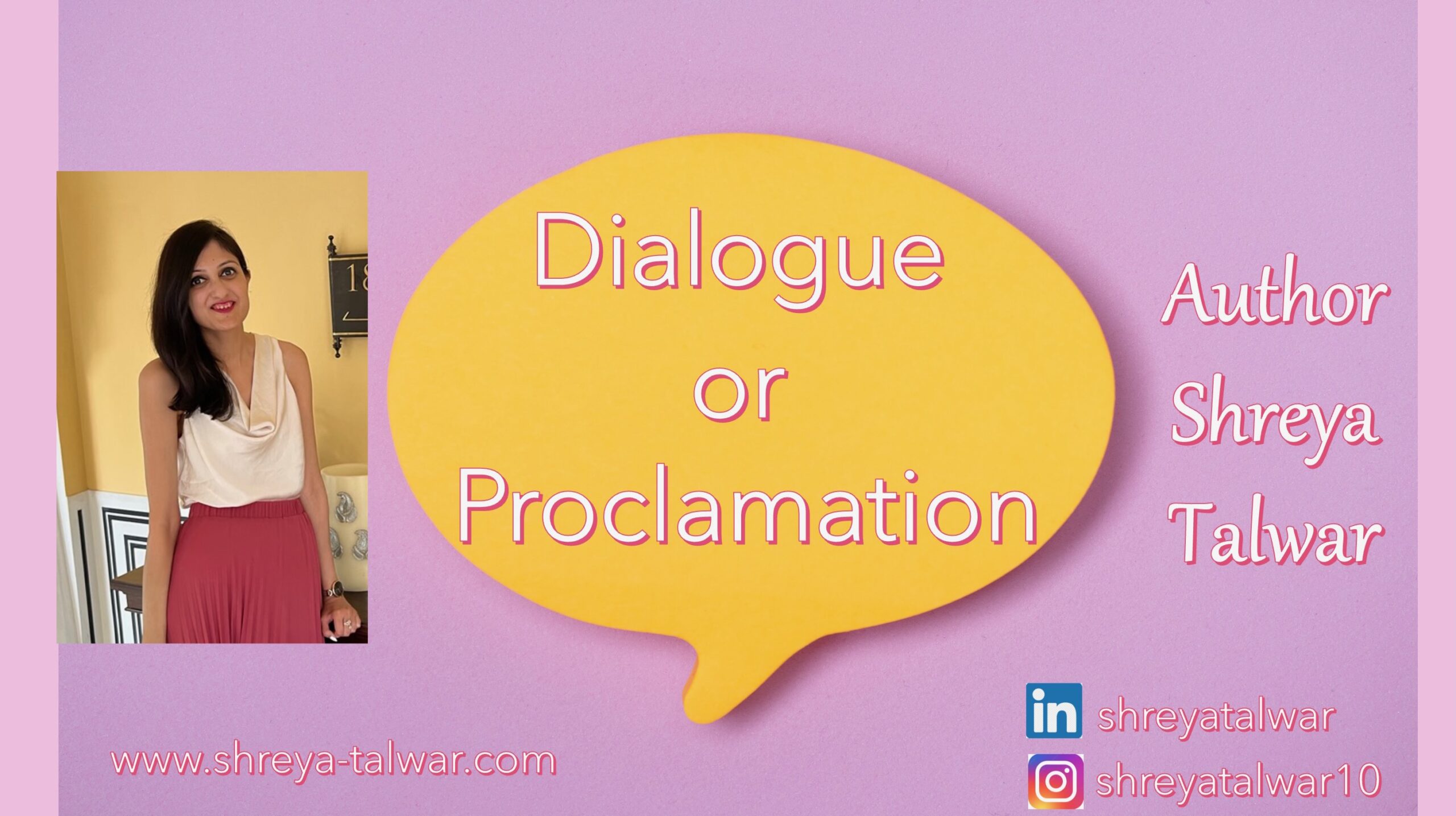Sometimes one often wonders that why do things go haywire when one speaks their heart out? Is it not okay to express one’s true feelings? Each individual is different and hence, there are bound to be differences in opinion. So, why does at time a bitterness arise between two people when one begins to express their thoughts which might be quite contrary to the other.
The problem does not lie in the fact that one decided to speak their mind, instead it lies in the way the opinions are expressed, which at times makes one lose the essence of the conversation. Sometimes while conveying our thoughts, we get so carried away by our emotions to prove our point, that the crux of the conversation drifts away from making the other person understand our outlook to getting entangled in a quarrel to prove the other one wrong.
As a result, a closure comes in the form of a pronouncement rather than a sharing of expression. Meanwhile, the other person involved in the discussion also shuts their mind because now they are no longer being given a different perspective of looking at things, rather are being told that their stance is altogether flawed. The conversation ends without finding any solution to the problem that needed to be solved and because of which the discussion had arisen. As a result, we begin pondering if we did the right thing by speaking our heart out or should we have confided our thoughts to ourselves.
But one does not realise that the only culprit to be blamed in this mayhem is our tone of expression. Even if you disagree with someone, you can have a calm and composed conversation with them, wherein you need not assert yourself to prove your point. This way the other person would be equally receptive to the new ideas coming their way as they would know that there is a mere difference of opinion that can be sorted out by having a conversation and where both people involved in the communication would give due respect to the other’s way of thinking. One must always remember that there are always two sides of a coin, and both represent a different image. You cannot judge as to which side gives a more righteous image to the coin.
Similarly, the aim of any such discussion should always be to make the other person gauge that despite having different standpoints, one can come to a midpoint where each individual gets the freedom to reflect their stance, while still standing together just like the two sides of a coin.



